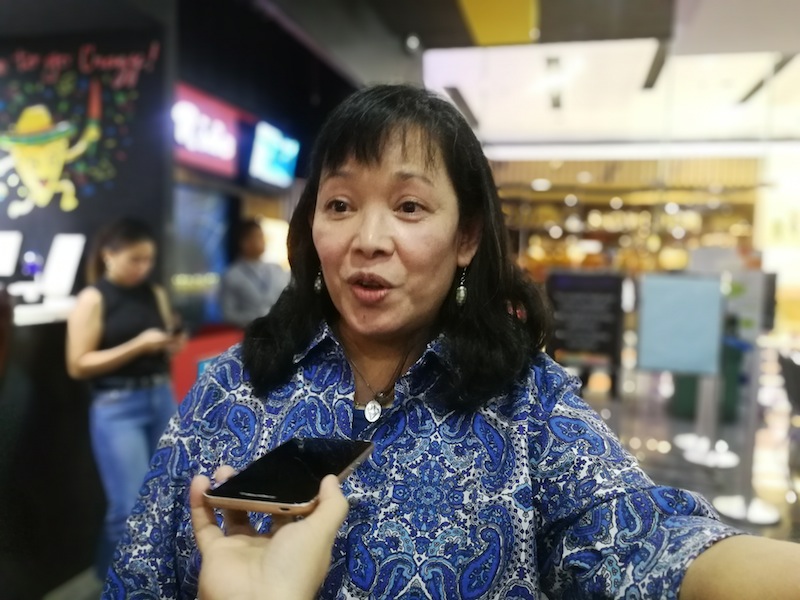DAVAO CITY (MindaNews / 27 July) – Experts from the World Coffee Research (WCR) supported by the US-based Agricultural Cooperative Development International-Volunteers in Overseas Cooperative Assistance (ACDI-VOCA) are studying the quality of coffee beans grown in Mindanao.
Joji Pantoja, chief executive officer of the Coffee for Peace and concurrent president of the Davao Coffee Council, said during Friday’s Connect media forum that the results of the study will be needed to establish a strong Philippine coffee brand, which starts to get international recognition due to the efforts of the industry pioneers to market the specialty coffee from different regions of Mindanao to the global buyers.

“That’s why, we needed the World Coffee Research and that’s why, we needed the coffee graders to taste our coffee because we want to establish Philippine coffee. Sa ngayon wala pa (We have none so far today),” she said.
The WCR, which has worked across 21 coffee-producing countries, has a mission to “grow, protect, and enhance supplies of quality coffee while improving the livelihoods of the families who produce it,” boasting of a scientific and administrative leadership team that “creates and executes an ambitious research agenda.”
She said international buyers prefer Arabica coffee from Mindanao because of its unique taste profile. However, she said the production of Arabica in the island remains insufficient to supply the requirement of international buyers.
“The highest that I have exported is 2,000 metric tons to the US and Canada,” she said.
She recalled receiving orders of 50 metric tons of Arabica beans a month from a Canadian buyer but that she had to decline due to lack of supply.
“If you are looking for volume, we don’t have,” she said.
Pantoja said the Philippines was supplying coffee to Europe when the country was still under the Spanish rule but the production later dwindled when coffee farms were converted to plantations of banana, pineapple, papaya, and rubber under the American rule.
She said the decline in the coffee prices in the world market way back in the 1980’s almost wiped out the coffee trees.
“Nawala na tayo sa coffee map na producer ng kape (We disappeared in the coffee map as a producer of coffee),” she said.
She added efforts had been undertaken by the Department of Trade and Industry and Department of Agriculture to increase the production level of the farmers Nursery projects have been started to increase the number of available coffee seedlings.
Pantoja noted an increase in the number of inquiries from prospective foreign buyers such as Europeans, Canadians, Americans, Taiwanese, and Koreans for the Arabica coffee in Mindanao.
She said Coffee for Peace, a social enterprise championing Mindanao coffee as a tool to achieve peace in the conflict-affected areas, is training the farmers in Alamada town, North Cotabato on the production of premium specialty Arabica beans to fill the supply shortage in the country.
She said her group is working in conflicted communities around Mt. Apo, covering Davao Region and Soccsksargen, Mt. Kitanglad in Bukidnon, and Mt. Matutum in South Cotabato.
She added the six-month training also involves peace and reconciliation, focusing on relationship-building among members of the conflict-affected community and the importance of the environment.
She said many of the coffee farmers in the communities they have worked with before failed to attain a specialty coffee quality due to the incorrect processes employed in farming and post-harvest.
“It’s just like wine tasting, there are certain grades for the coffee. If you cannot meet it, yours will not be a specialty coffee… We are trying to educate the farmers now,” she said.
She said one of the successful coffee farmers is Marivic Dubria of Balutakay Coffee Farmers Association (BACOFA) which won 1st place in the 2019 Philippine Coffee Quality Competition (PCQC) last March and represented the country during Specialty Coffee Expo (SCE) 2019 in Boston, Massachusetts, from April 11 to 14.
BACOFA coffee farms are located on the foothills of Mt Apo in Bangsalan, Davao del Sur.
There were four other BACOFA farmers who made it to the top 12 under the Arabica variety category: Agustin Timon (4th), Mario Luz Dubria (6th), and Sergio Soon (10th). Delio Cesar, of Maragusan, Compostela Valley, bagged the 11th place under the Robusta variety category.
Despite the growing demand, data from the Philippine Statistics Authority (PSA) showed the country’s coffee production had been seeing a consistent decline from 75,454 metric tons in 2014; 72,341 MT in 2015; 68,822 MT in 2016; and 62,077 MT in 2017.
The region’s share of the 2017 nationwide production was 17% or 10,839.95 MT, consisting of Arabica (2,200.47 MT), Excelsa (1,258.09 MT), Liberica (75.47 MT), and Robusta (7,305.92 MT), according to PSA. (Antonio L. Colina IV / MindaNews)







